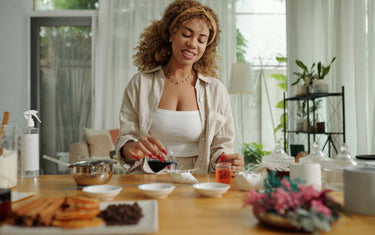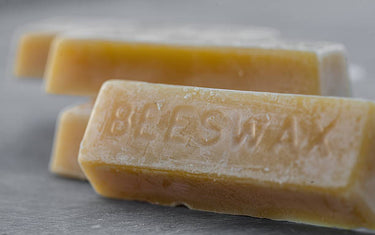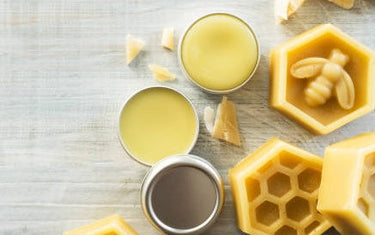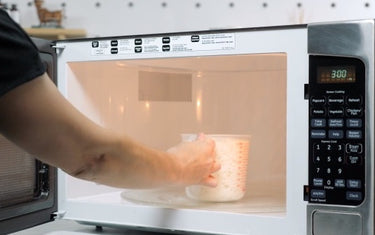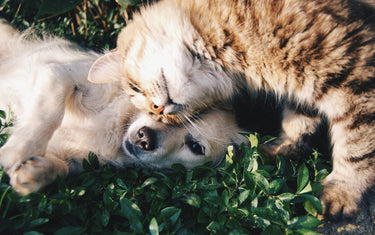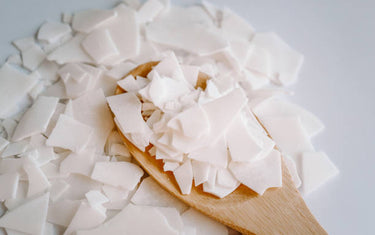7 min read / 3 October 2023 / yasmin sharp
Do Bath Bombs Expire and How Long Do They Last?
Unlock the secrets of bath bomb longevity.
Share this post
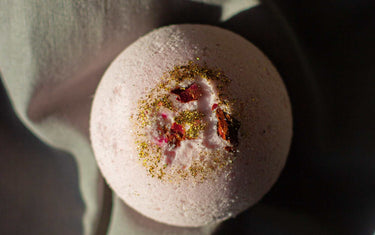
Bath bombs add a touch of luxury to your time spent in the bathroom, combining a variety of ingredients that can create an explosion of colour and fragrance.
They are hugely popular products that you can buy online, in-store or make very easily at home, although a lot of people often ask, “Can bath bombs expire?”. It’s a sensible question to pose, as using an expired product can expose you to a few unwanted risks, especially when it comes into contact with your skin.
We decided to take a deeper look at how long bath bombs last, the ways in which they can expire and what you can do to maximise their shelf life.
Do bath bombs expire?Nearly all the ingredients used to make bath bombs have their own expiry date, which also means that bath bombs can and will eventually expire. When talking about the shelf life of a bath bomb, this refers to how long they will retain their effectiveness and the length of time you can store them for. The vast majority of bath bombs include ingredients like citric acid and bicarbonate soda (baking soda). As we explain below, both items have very long expiry dates, although over time, citric acid will eventually lose its potency. However, using good storage practices can help to maximise their shelf life. The fresher your bath bomb is, the more likely it is that you will be able to enjoy its fragrance and effervescence in the water. But when exposed to moisture or water, bath bombs are likely to create an acid-base reaction. If they are exposed to an excessive amount of moisture in the air, this can reduce the amount of fizz bath bombs will produce in the water, whilst also reducing their effective properties. |

How long does a bath bomb last?
Most bath bombs last for up to 6 months, although it can vary depending on the ingredients that have been used and how they have been stored.
Ingredients like essential oils, oatmeal, fresh fruit extracts and flower petals can all contribute to mould growth. The more natural ingredients you use in the recipe, the shorter the shelf life of the bath bomb.
As is the case with any product, the shelf life of a bath bomb is the same as the composite ingredient with the shortest shelf life. So, when this individual ingredient expires, the bath bomb also expires.
How long do bath bomb ingredients last?
While storing your bath bombs in a bathroom cupboard appears to make sense, you also need to consider that they will be exposed to moisture and steam.
Since bath bombs contain a variety of fresh ingredients, this type of exposure can affect their longevity, which could reduce the shelf life of the package.
The usual shelf life for some of the ingredients used in bath bombs are:
- Essential oils: Anywhere between 1-8 years depending on storage conditions and usage.
- Carrier oils: Usually 1-2 years, depending on the usage and storage.
- Baking soda: 6 months for an opened package, 2 years for an unopened package.
- Citric acid: 3 years for an opened package, 5+ years for an unopened package.
- Cornstarch: Almost indefinite, provided it is stored correctly.
- Epsom salt: Indefinite, provided correct storage instructions are followed.

How do you know when a bath bomb has expired?
Using an expired bath bomb can increase the chances of an allergic reaction, so it’s helpful to know the tell-tale signs to look out for.
You should be able to spot things like discolouration, growing mould or an unpleasant odour that will tell you if the bath bomb has expired. Even if you do not notice any signs of external change, when the old bath bomb is dropped into the water, it will lack its usual effervescence due to the loss of carbon dioxide gas.
Adding an expired bath bomb to bath water significantly increases the risk of skin irritation. If you are unsure if a bath bomb is good to use, keep a lookout for things like:
- Discolouration: No matter how bright and colourful the bath bomb, it will start to fade over time. The less vibrant it looks, the more likely it is that it has expired. So, if any of your bath bombs have faded quite badly, it’s probably safer to throw them away and make new ones.
- Mould: When given the right conditions, mould can grow almost anywhere, and that also includes bath bombs. If you see any type of mould growth on a bath bomb, then it’s a clear sign it has expired. Some bath bomb recipes use natural ingredients like butter, milk and oatmeal, and these are more likely to go mouldy when left unused for some time. Bath bombs can also expire if they are exposed to water, oxygen or mould spores.
- Bad odours: The chemical ingredients used to make a bath bomb may start to let off an expired odour when it has gone off, or you may smell something that is more rancid. If the fragrance has changed to something different to that of the original essential oils included in the recipe, this also means it has likely expired.
- Lack of fizz: Over time, the citric acid and baking soda will become less effective, which means they produce less of a reaction when added to water. These two ingredients are the main reason why a bath bomb fizzles, so if you test a bath bomb in the sink before adding it to the bath and it has little to no fizz, you should avoid using it.

Can you extend the shelf life of a bath bomb?
When it comes to storage, there are a few things you can do to extend the shelf life of a bath bomb. Because they are a mixture of ingredients, it means the expiry date can sometimes be shorter or longer than 6 months, especially when storage conditions are taken into consideration.
To ensure you are storing your bath bombs correctly, take a look at the tips below:
Use a location that is cool and dry
If you have experience with essential oils, then you can follow the same basic principles for storage. Keep your prepared bath bombs in spaces that are cool and dry, away from direct sources of heat and water.
Cupboards and drawers are recommended, as items placed there have a better chance of maintaining a balanced temperature. Heat can also have a detrimental effect on the citric acid and baking soda, reducing their effectiveness the hotter the bath bomb becomes.
Lock out moisture and oxygen
When storing your bath bombs in a cupboard or draw, you should also keep them in airtight Ziploc bags or sealed plastic containers. This helps to reduce exposure to oxygen and moisture, both of which can damage the integrity of the ingredients.
Keep similar scents together
Storing bath bombs together that have similar scents will help them to maintain their original fragrances. The opposite is also true. So, for example, if you were to store a lavender-infused bath bomb with a citrus-infused bath bomb in a sealed bag, the scents would intermingle and affect each other, creating a new fragrance that may smell different or a little strange.
Ensure bath bombs are completely dry before storing
Before you place your bath bombs in a Ziploc bag, plastic container or anything else, you should check that they are fully dry. If you place a slightly damp bath bomb into a sealed container, it will release carbon dioxide as it continues to dry out, which could increase the pressure levels inside the container and cause it to crack.
Are expired bath bombs dangerous?
Expired bath bombs aren’t dangerous to your health, but they can cause allergy and sensitivity issues that are detrimental to your skin.
Of course, it is entirely your own decision whether you decide to take a risk with an expired bath bomb, but if you see some of the warning signs explained above, it is not recommended. The general rule is, the longer a bath bomb has expired, the more harmful it can be to your skin.
If you have a bath bomb that is over one year old, you should dispose of it and make a new batch. Bath bombs that have been stored in a damp, humid space for six months should also be treated with caution, as there is a good chance they have gone off.

So, do bath bombs expire? The short answer is yes, although as long as they are stored correctly, they should last for up to 6 months (or maybe even longer if you are lucky). Keep an eye out for any developing mould, discolouration, bad odours and lack of fizz, as these are all signs that the bath bomb has expired. Keep them stored in cool, dry spaces away from direct heat sources in your home (cupboards and drawers outside of the bathroom are ideal) and if you use natural ingredients in the recipe, you should expect the shelf life of the bath bomb to be shorter.



